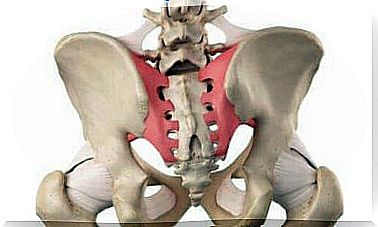What Happens In Your Brain When You Are Sad?

Life is a series of learning moments. Pain and sadness are inextricably linked to this existence. Avoiding them is impossible, but it is important to be open to the life lessons they offer us.
In this way you are able to grow as a person. As the saying goes, “The roots of trees grow deeper during the storm”.
Wisdom can be achieved by learning from mistakes and problems encountered on your way to growing into a stronger individual. The article below takes a look at what actually happens in the brain during grief and suffering.
Sadness shapes the brain

You probably already know that sadness is a strong emotion, which has a major influence on body and mind. And it doesn’t really seem to prevent bad things from happening in life. It was found that under the influence of this, the brain undergoes changes throughout the life course, as a result of which even the personality can change.
This is painfully evident in children who have been subjected to abuse from an early age. Doctors and scientists compare the suffering it endured to that of a soldier who has endured threatening combat situations.
Constantly living in fear, being constantly alert and continuous sadness cause disturbances in the brain and in case of stress or sadness the body uses many neurotransmitters. These ensure communication between the billions of brain cells by means of an electrical current. In certain parts of the brain, such as the amygdala and the insular cortex, an overstimulation is noticed.
In the long run, this can lead to personality changes. Distrust, aggression, tendency towards depression and even tendencies towards aggressiveness are becoming more and more prominent.
Although reactions to suffering and grief are also culturally determined and will not be the same everywhere in the world, this typical pattern can generally be observed. Take the example of marriage where one of the partners is abused. Almost everywhere identical reactions to prolonged exposure to violence and suffering are seen.
Once these patterns begin to affect the mind, the victim is seen sliding into a state of helplessness, followed by depression, frustration and aggression.
Grief is also a powerful school

We all know that in life there is no guaranteed success or a straight path to happiness without detours or obstacles. We love and enthusiastically learn from all the positive emotions and experiences we face from a young age, but undoubtedly the painful and severe setbacks can also help us a lot. Sorrow and suffering are therefore sometimes seen as good but ruthless teachers.
You have not lived if you have not suffered. A strong statement, which nevertheless contains a kernel of truth. To refuse to learn from mistakes, mistakes, and sorrow is to deny that life is a continuous school. A first step in this is to accept what is before moving on.
This means accepting loss and grief, overcoming them step by step and becoming a little stronger every day.
Suffering is hard, we all know that, but it doesn’t have to be an obstacle to moving forward in life or closing all doors to new experiences. Inner strength, motivation and the will to move on will be the determining factors to get your life back on track and to cope with and overcome the suffering you have endured.
Sorrow seeks liberation

Make the decision now not to let the sadness and suffering take over and rule your life. Learning to live with grief has a negative influence on the brain that should not be underestimated. High cortisol levels, stress, loss of concentration and inability to learn new things are just some of the negative consequences.
Gradually you become completely out of balance emotionally, which will also affect your physical health in the long term.
See how you can begin to free yourself from a negative situation and a spiral of painful feelings. If you get hurt, respond. Are you pushed into a corner, see if you can leave or create your own place where you can breathe and move freely.
Cry as long as you need to, but find your voice and your strength to speak up and respond to the hurting.
Find a solution to every problem and get out of the victim role, because no one deserves to live in suffering and sorrow for a long time! Every step and every effort will pay off and lead you to better mental and physical health.









